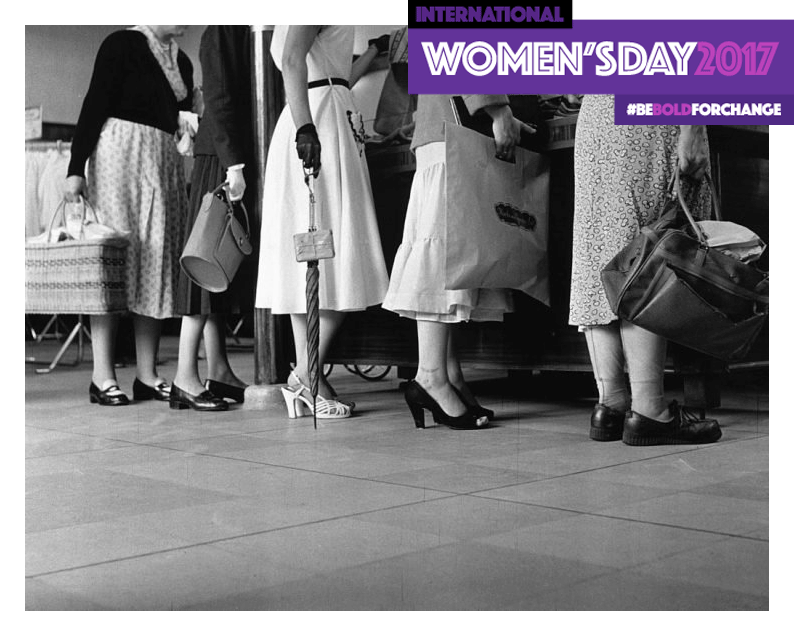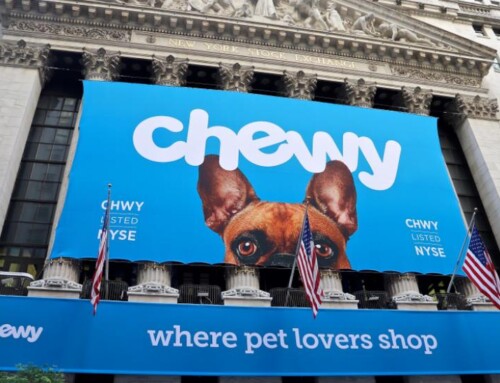By Alexandra Mondalek | March 8, 2017
While millions of men and women across the world seize International Women’s Day as a chance to recognize the fight toward gender equality, retailers still have the bottom line in mind.
Retailers — seemingly without exception — are opportunistically leveraging the day of protest to push products. People’s email inboxes were flooded this morning with mass emails, broadcasting messages of “empowerment” and inclusiveness, as well as discount codes and promotions inviting women to shop.
Normally, that kind of exploitation wouldn’t ruffle feathers, but this year it directly contradicts a central goal to International Women’s Day’s “Day Without Women” strike. The strike’s organizers (who also mobilized people for the Women’s March on Washington) outline three ways women can participate: take the day off, paid and unpaid labor; wear red as an act of solidarity; and avoid shopping for one day (with exceptions for small women- and minority-owned businesses). Retailers, it seems, have largely ignored the last guideline.
An email from KateSpade.com with the subject line “women empowering women” touted “on purpose” handbags, which consumers were then directed to on the Kate Spade site.
The email subject line from Tory Burch read, “#EmbraceAmbition,” and invited recipients to “take the pledge” i.e., provide your email address to sign up for a newsletter from the Tory Burch foundation — which also provides a “shop the cause” section replete with T-shirts and bracelets.
Nordstrom’s homepage highlights International Women’s Day with a story “celebrating” four women who work in the fashion and beauty industries. They also happen to work for brands that sell products through Nordstrom. Provided, of course, are shopping links to items that the women plug in their interviews on the Nordstrom site.
A message from online shopping site Gilt references Beyoncé: “Get in Formation. Our Favorite Female-Powered Brands: Sky Ting Yoga, Erase Spa & More,” reads the Gilt email.
This isn’t confined to the U.S. either, Quartz reports. Retailers in China are encouraging women to celebrate by shopping. Tmall, one of China’s biggest e-commerce portals, is using the slogan “Queen Day, Live your beauty” along with a photo of a woman staring longingly at a red high-heel shoe, rebranding the day to sell material products. Jumei, a site focusing on cosmetics, pledges to “make you look good” on “Goddess Day.”
Steve Goldberg, president of retail consulting firm The Grayson Company, said that retailers’ Women’s Day-themed emails are somewhat disingenuous, and likely won’t translate to more sales for the companies.
“This is not a Hallmark holiday, and it’s not a retail holiday,” Goldberg said. “This is an important day for recognition of certain imperatives for women and for men, so it’s not a good idea for a retailer or anyone to exploit a movement like this. It could backfire.”
On Instagram, an increasingly popular platform through which retailers are directly reaching their shoppers, small brands and international names alike are leveraging the day. HUDA Beauty, a cult favorite with a following of 18 million, offers a makeup giveaway in the name of women’s empowerment. The post is tinged in irony.
The Blonde Salad, led by fashion “influencer” Chiara Ferragni, posted a photo to its 288,000 followers with the caption, “Happy #internationalwomensday from us at #ShopTheBlondeSalad! To celebrate, we have a special edition tee by @melinde_world available! Get it at the link in our bio.”
Instagram “fitness models” like Linn Löwes plugged a 15-percent-off discount code for the site Women’s Best, which offers fitness products, supplements, and sportswear. The list of brands and influencers trying to make a buck off International Women’s Day is endless.
Goldberg said today’s shoppers are looking for authenticity and more genuine outreach, and consumers are holding brands accountable for their political inclinations (as demonstrated by those who boycotted Nordstrom for carrying Ivanka Trump products, in one example.) To be sure, civic engagement is certainly à la mode; T-shirt activism was on display during New York, London, and Milan Fashion Weeks.
For what it’s worth, some brands — still guilty of peddling products on a day intended not for shopping but for reflection and activism — tried to do some good. Marc Jacobs announced a capsule collection with Vogue editor and fashion legend Grace Coddington, the proceeds of which are pledged to Planned Parenthood. Perhaps in one of the least egregious examples of retail activism, Gucci posted a series of photos calling attention not to their clothing but to the Global Citizen organization.
The real change that women on strike will effect is yet to be seen, but one thing is certain: Consumerism will remain activism’s ugly cousin.
To view the published article, click here.





